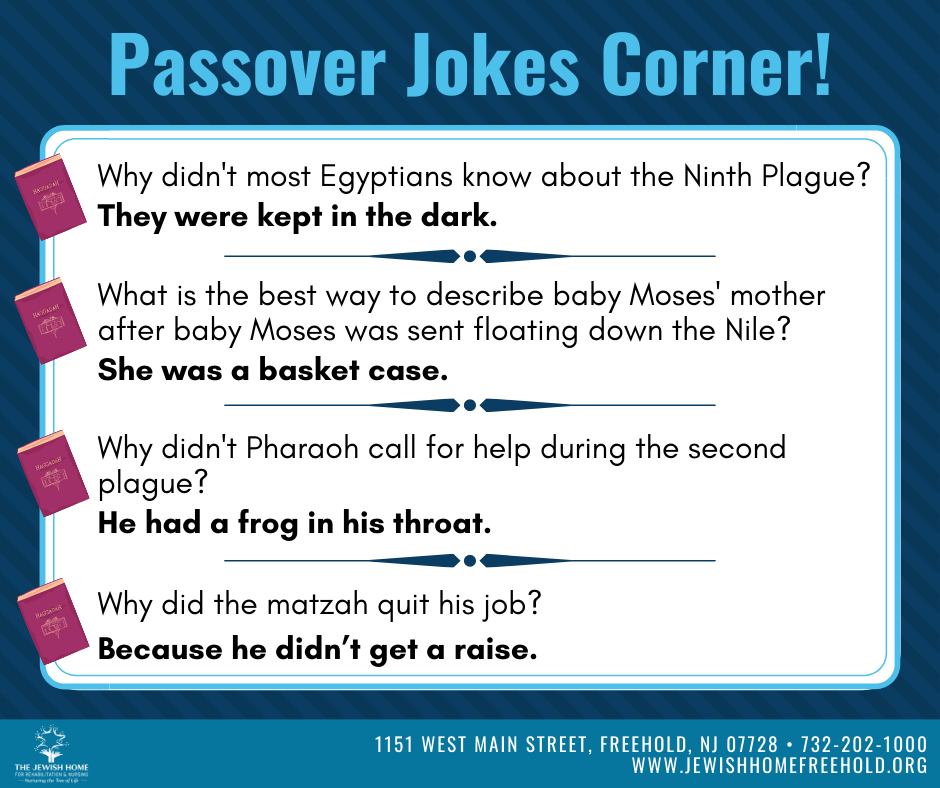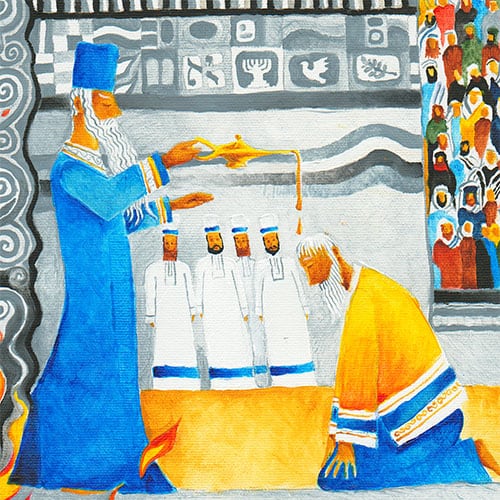Bonjour / Hello [nickname_else_first_name],
Table of contents
1) Perashat Hashavoua - Rabbi Eli Mansour
2) Halakhat Hashavoua (Halakhot related to day to day life) By Hazzan David Azerad -
-Laws pertaining to Pesah
3) Holy Jokes!
1)PERASHAT HASHAVOUA
This Week's Parasha Insight with Rabbi Eli Mansour
Pesah- Its A Mirage
The first of the ten plagues which G-d brought upon the Egyptians was "Dam" – the plague of blood, when G-d transformed the water in the river to blood. The Torah (Shemot 7:21) tells that as a result of this plague, all the fish in the river perished, causing the river to emit an offensive odor – "Va’yib’ash Ha’ye’or."
Rav Avrohom Schorr (contemporary), in his He’lekah Ve’ha’libub commentary to the Haggadah, cites the Sefas Emet (Rav Yehuda Aryeh Leib Alter of Ger, 1847-1905) as explaining the symbolic significance of this aspect of the plague. He writes that Beneh Yisrael sensed the "stench" of the land of Egypt, and recognized that they could no longer remain there. Earlier, when Moshe had conveyed to them G-d’s promise of redemption, they did not listen (6:9). But now they began realizing that they could not live in the decadent society in Egypt, and this is the meaning of "Va’yib’ash Ha’ye’or" – that they could no longer tolerate the "stench" of the impurity of the society among which they resided.
Rav Schorr added that fish are sometimes used as a symbol for physical desires. When Beneh Yisrael were in the desert and complained about the manna, longing to enjoy a variety of food, they reminisced about the fish that they were fed in Egypt ("Zacharnu Et Ha’daga" – Bamidbar 11:5), and the Sages explained that Beneh Yisrael on that occasion were also complaining about the Arayot (restrictions on intimate relationships). Fish, then, are a symbol for unrestrained indulgence in physical pleasures. As the plagues began, the "fish" of Egypt "died" in the eyes of Beneh Yisrael. The people began to realize that the pleasures which the society around them celebrated and pursued were just a mirage, that the joy they bring is temporary and not real, and that the decadent lifestyle the people around them lived was actually "malodorous," and not something to be embraced.
Rav Schorr explained on this basis the Midrash’s depiction of Beneh Yisrael and Egyptians drinking during the plague of blood. The Midrash relates that even if someone from Beneh Yisrael was drinking from the same cup as an Egyptian, he would receive water, but the Egyptian would receive blood. Rav Schorr writes that this symbolizes Beneh Yisrael’s changed perspective. They now viewed wanton physical indulgence differently than the Egyptians did; although they lived with the Egyptians, they had a very different outlook and a very different attitude.
The Yeser Ha’ra (evil inclination) seeks to mislead us by showing us a mirage. Forbidden activity appears to us as something valuable and important, as something we need to indulge in, which will bring us joy and satisfaction, when in truth, it is valueless and even harmful. We need to try to change our perspective, and regard forbidden pleasures as "malodorous," as something to reject and stay away from, so that we, like our ancestors in Egypt, will be worthy of our final redemption, speedily and in our times, Amen.
2) HALAKHAT HASHAVOUA
Halachot this week are selected and Translated by Hazzan David Azerad
Pesach Laws according to the rulings of Rabbi Obadiah Yosef ZT”l
What is the cancellation or nullification of Chametz?
After Bedikat Chametzs(checking for chametz) is over, the chametz should be nullified,incase a person forgot that he has Chametz somewhere in his property that he has not seen.By nullifying the Chametz one has to consider the Chametz to be like the dust of the earth therefore one must understand what he is saying when reciting the Kol Chamira.The Kol chamira can be said in any language and repeated three times at night after Bedikat Chametz and three times in the morning by Biur Chametz (burning of the Chametz).One has to understand that even he nullified the chametz he should not have any Chametz laying around.
Biur Chametz - what is the end of the time of eating or burning the Chametz?
According to the Torah, it is forbidden to eat or enjoy chametz on the 14th day of Nisan. This year Wednesday morning .Stop eating by 10:22 And burning and selling the chametz by 11:39.
How do you burn the chametz?
After finishing eating breakfast, one collects all the remaining leaven (Chametz), and then burns it in order to do the mitzvah of "Tashbitu Seor Mibatechem."removing Chametz from our homes.
Bevirkat Shabbat Shalom
Chag Kasher Vesameach
David Azerdad
3) HOLY JoKeS!!
Selection of funny snippets, loosely related to this weeks parashah or current events, to brighten your day











